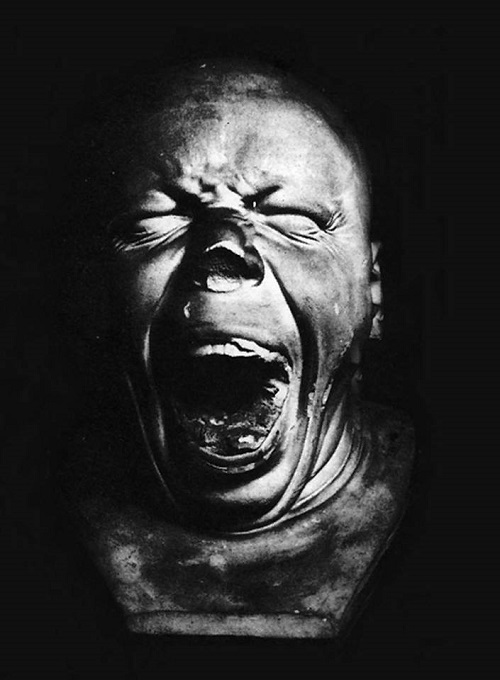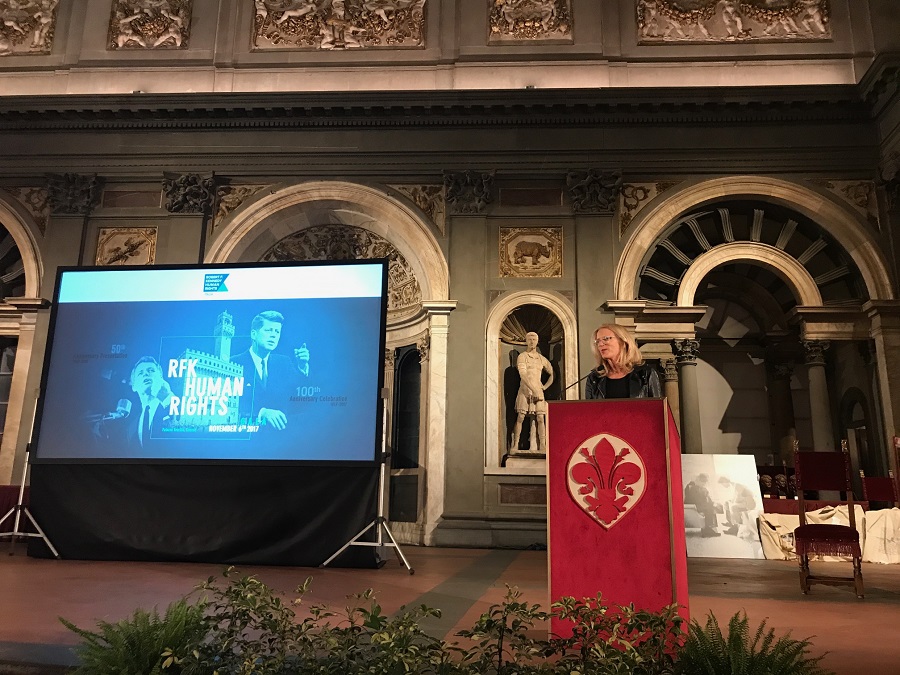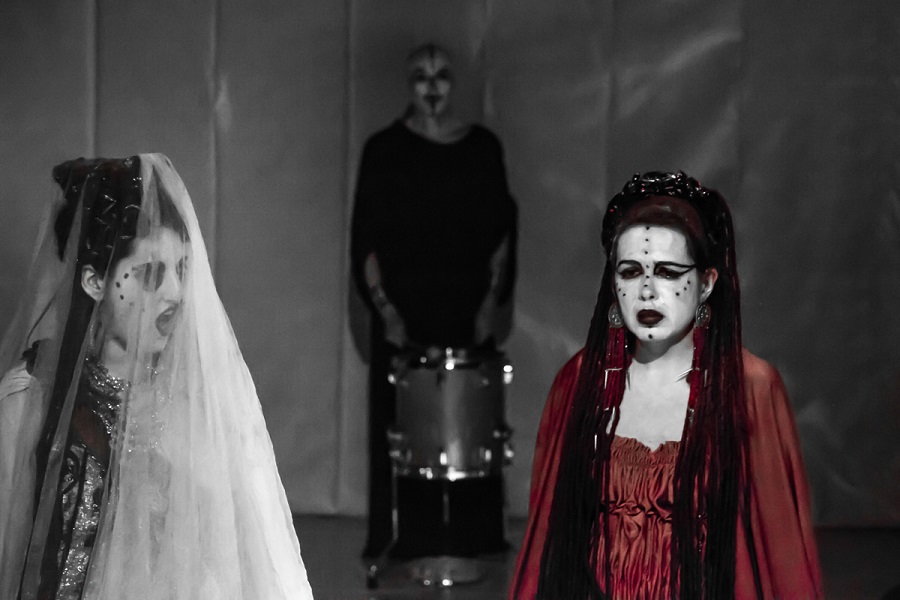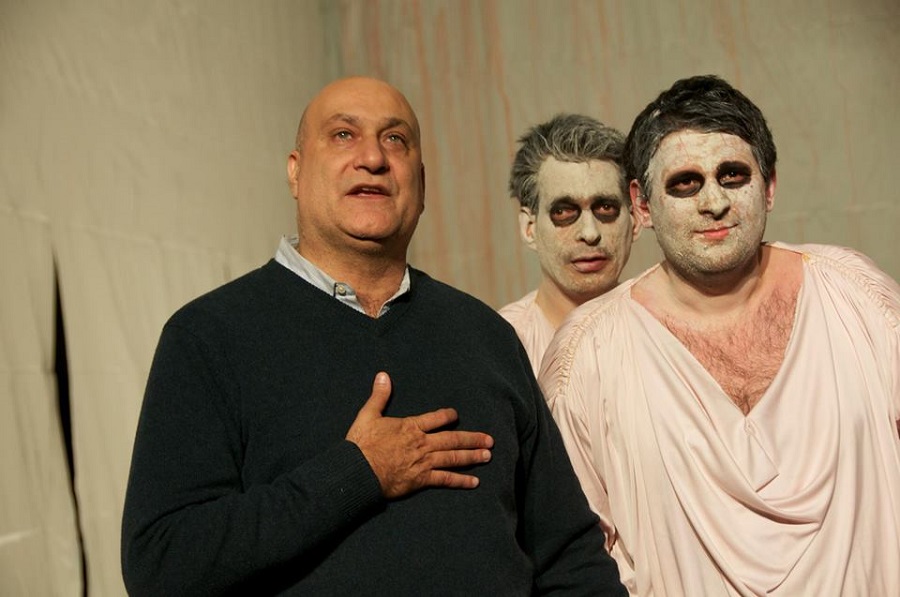By
Cecilia Sandroni
In many countries they are still confined to cage beds or straightjackets; we offer them the university course, Integrated Theatre of Emotion. We are already the Future.
Dario D’Ambrosi
For his commitment over 25 years Dario D’Ambrosi and his Pathological Theatre were awarded the “RFK Human Rights Italia 2017” prize during a gala at Florence’s Palazzo Vecchio on November 6.
D’Ambrosi is the founder and director of the Pathological Theatre Association, based in Rome, where he seeks to unleash the creativity of those with intellectual disability through the practice of the performing arts.
According to D’Ambrosi, the Pathological Theatre is an awkward theatre that puts the audience in trouble and makes the spectator feel guilty because “it looks at us in the eyes and communicates an uncomfortable truth without words, without diction.” If compared to conventional stage performances D’Ambrosi’s Pathological Theatre engages the public in a fatiguing experience “because it goes out of the way, it is out of place,” he says. A struggling and aristocratic theatre, it is often staged in places not exclusively theatrical like butchers, showcases, and streets, but with international resonance.
In fact, D’Ambrosi has brought his shows around the world in experimental theatres in Berlin, Paris, Praha, Barcelona, The Hague, Rio De Janeiro, and in the US where it recently attracted the interest of researchers from different universities like the New York University, the University of Akron in Ohio, or the Howard University in San Francisco, where his methodology has been studied.
On the occasion of the International Day of Persons with Disabilities D’Ambrosi has been invited to stage his ‘Medea’, which won in 2013 the prestigious Wilton’s price for best foreign performance, at the U.N. headquarters in NY where a one-off show is due on Dec. 4.
Now, after a successful experimental academic year in 2015-2016 at Rome’s University of Tor Vergata with the support of the Italian Ministry of Education, D’Ambrosi expects to incorporate his Pathological Theatre into the first-ever ‘Integrated Emotional Theatre’ university course for students with mild intellectual disability.
The course, which is shaped in the form of a research and training community with the full participation of teachers, managers and students, will implement a Code of Ethics that, in accordance with the Charter of Rights of people with disabilities, wants to define a path of intellectual, artistic, and scientific development towards the integration of people with disabilities by upholding their right to social affirmation.
The ‘dramatherapy’ of Dario D’Ambrosi is not a methodology made of rules set in stone, it has evolved through years and certainly continues to evolve today. There is a common thread with the revolution in the theatrical culture and the developments of clinical psychiatric therapies that have accompanied the birth of the Pathological Theatre and its extraordinary work with students with physical or mental disabilities.
In this regard, the importance given to individual life experiences was central, along with a desire to change, and led to the questioning of the cornerstones that theories and methods of approaching the individual with disabilities were built upon.
All that is valuable in human society depends upon the opportunity for development accorded to the individual.
Albert Einstein
Cecilia Sandroni
Cecilia Sandroni is a member of the Foreign Press in Rome, in addition to being an expert of international relations in communication. Her skills range from film to photography with a passion for human rights. Independent, creative, concrete, she has collaborated with major Italian and foreign institutions for the realization of cultural and civil projects.






No Comments Yet!
You can be first to comment this post!